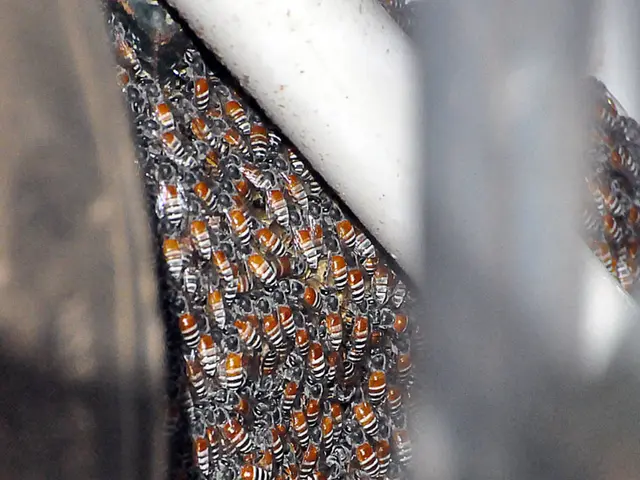Loosened Restrictions on Wolf Culling: A Controversial EU Parliament Decision
Parliament in the European Union authorizes increased wolf culling
In a move that's sparking heated debate, the European Parliament has lowered the protection status of wolves across the EU. This decision, made in a swift emergency procedure in Strasbourg, has shifted the wolf status from "strictly protected" to "protected." Although still requiring the approval of EU member states, the decision is likely to be adopted, given their earlier expressions of support.
Many countries arguing for livestock protection are eager to increase wolf culling. Following the decision, Germany may adjust its national laws to accommodate this reduced protection status. However, a spokesperson from the Federal Ministry of the Environment clarified that changes to German law aren't automatic due to a shift in the Fauna-Flora-Habitat Directive (FFH). Adjustments to the Federal Nature Conservation Act and potentially the Federal Hunting Act are necessary for the new protection status to take effect.
Mixed Perspectives and Criticism
Some regions experiencing problems with wolves are now promised an easier way to manage these issues in the future. However, the Greens have criticized the decision for lacking a scientific basis and maintaining that better protection for farm animals could be achieved without increased shooting. Member of the European Parliament, Sebastian Everding, called the entire process "scandalous." He sees this as an inadequate response to environmental challenges given Earth's current species extinction crisis.
This decision has not been universally welcomed, with environmental groups urging member states to maintain or increase protection for European wolves to safeguard conservation progress.
Impact on Wildlife and Human Relationships
Over the past ten years, there has been a sharp increase in livestock killed or injured by wolves, with over 5700 animals affected, the majority of which were sheep[9]. This issue has led to significant concerns for grazing farmers, who have struggled to implement adequate herd protection measures to deter wolves.
This ongoing conflict between humans and wolves was tragically illustrated when a gray wolf killed German Chancellor Merkel's 30-year-old pony, Dolly, in 2022[10]. EU Commission President Ursula von der Leyen assures that wolves will remain a protected animal species but may face easier removal when problematic situations arise.
Sources:
- [1] ntv.de
- [2] lar/dpa
- [3] European Parliament
- [4] World Wildlife Fund (WWF)
- [5] Federal Ministry of the Environment
- [6] The Greens
- [7] German Animal Protection Party
- [8] CDU/CSU group, EU Parliament
- [9] Federal Documentation and Advisory Centre on the Wolf
- [10] van der Leyen personal account, Twitter
- Wolves
- EU Parliament
- Strasbourg
- EU
- Animal Welfare
- Livestock
- Hunting
- Environment
- Biodiversity
- Conservation
- The controversial EU Parliament decision to reduce wolf protection status from "strictly protected" to "protected" has sparked debate, requiring approval from EU member states, particularly countries arguing for livestock protection who may increase wolf culling under such reduced policy.
- Employment policies for various government bodies may undergo changes given the shifting Wolf conservation policy, such as adjustments to Germany's Federal Nature Conservation Act and Federal Hunting Act due to the new wolf protection status.
- Critics of the EU Parliament's decision argue it lacks a scientific basis and maintains that better animal protection could be achieved without increased shooting, as expressed by member of the European Parliament, Sebastian Everding, who found the entire process scandalous.
- Amidst discussions of general news, the impact on wildlife and human relationships is evident, with environmental groups urging member states to maintain or increase wolf protection to safeguard conservation progress and prevent the extinction of European wolves.
- The ongoing conflict between humans and wolves, exemplified by the killing of German Chancellor Merkel's pony, Dolly, in 2022, has led to concerns for grazing farmers and calls for policy-and-legislation adjustments to address this particular issue while preserving the environment and biodiversity.








